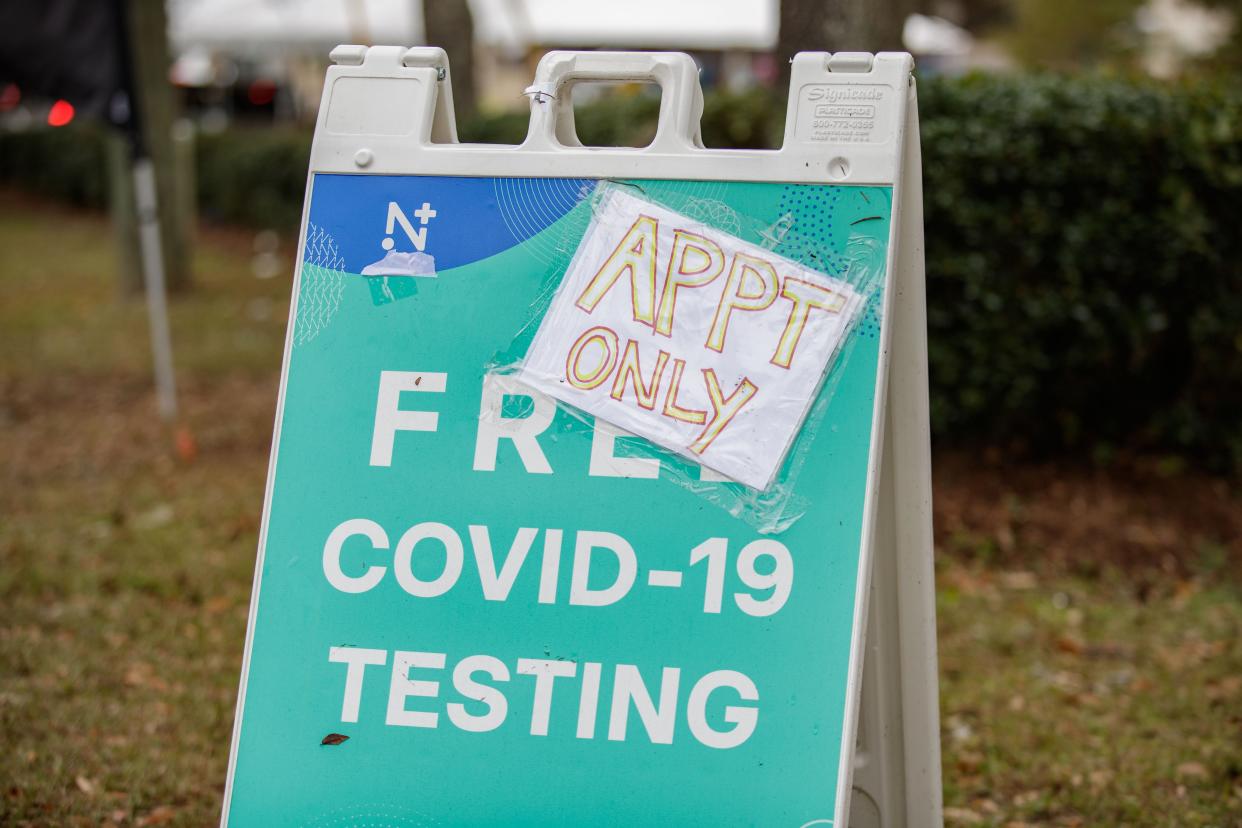Being health literate helps guide your decisions for better health outcomes

The importance of health literacy has become even more relevant as the COVID-19 health crisis continues to affect our country (as well as the entire world).
Understanding the importance of being health literate will allow us to better evaluate the issues related to our health. We will be equipped to access sources which provide more valid, science-based evidence.
Health: Look to science-based evidence for better health in 2022 | Mahoney
Nutrition: Food for thought in the new year: Three ways to add to your health | Anna Jones
Testing: Looking for a COVID-19 test in Leon County? Here is a list of all local testing locations
In my prior columns I have endeavored to focus on science-based resource information and provide sources to access for a more detailed understanding of a myriad of topics relevant to health promotion and disease prevention. So, let’s start with defining what health literacy entails.
Health literacy
The definition of health literacy was updated in August 2020 with the release of the U.S. government’s Healthy People 2030 initiative. The update addresses personal health literacy and organizational health literacy and provides the following definitions:
Personal health literacy is the degree to which individuals have the ability to find, understand, and use information and services to inform health-related decisions and actions for themselves and others.
Organizational health literacy is the degree to which organizations equitably enable individuals to find, understand, and use information and services to inform health-related decisions and actions for themselves and others.
The new definitions:
Emphasize people’s ability to use health information rather than just understand it
Focus on the ability to make “well-informed” decisions rather than “appropriate” ones
Incorporate a public health perspective
Acknowledge that organizations have a responsibility to address health literacy
Why is health literacy important?
The presence or lack of health literacy can drastically affect the health and wellness of an individual as well as the community they live in — from improving quality of care to influencing health policy.
A quick look at the importance of health literacy for individuals, the community and policy follows. Check out the resources at the end of this column for more specific details.
For individuals
Health literacy can have varying effects on a person’s health and wellness. One end of the health literacy spectrum involves accessing, understanding, and developing healthy habits. Preventing chronic illnesses can often be achieved by developing healthy lifestyle habits.
Another element of health literacy consists of an individual’s ability to know when and how to access medical care for a chronic disease or more serious health condition.
For communities
Poor health literacy can not only affect an individual’s health, but can impact families and communities as well.
If individuals are unaware of the correlation between certain personal behaviors and diseases, they may end up passing along unhealthy habits to their family and community members. This demonstrates that health literacy is important across all communities, particularly those that are underrepresented or do not have equal health care access.
For policy
A lack of understanding of basic health concepts can negatively affect health care beyond the physician-patient dynamic. It can directly impact the formation of policies and the cost-effectiveness of care. Health educators and public health workers who advocate for health care policies can only provide effective information based on what they learn from the communities they work with.
Impact to the economy
Health illiteracy has a substantial negative impact on the American economy. According to the Healthcare Information and Management Systems Society, “Chronic illness is responsible for seven out of 10 deaths in the U.S. Three out of four Americans aged 65 and over are living with multiple chronic conditions.”
When individual patients are not aware of how to treat certain medical conditions, those conditions can worsen and demand more medical services. On top of that, without health education, patients can develop other illnesses that evolve into chronic conditions.
The COVID-19 pandemic has provided an illustrative example of how health literacy (based on science) that is not followed can produce very negative effects not only in terms of hospitalization and death but also to the society at-large.
Thanks to the CDC and Ohio University for their contribution to this column.
Additional Information
Health literacy is a central focus of the U.S. Department of Health and Human Services Office of Disease Prevention and Health Promotion (ODPHP) report, Healthy People 2030.” Access the report at health.gov.
Read the March 2221article, Updating Health Literacy for Healthy People 2030: Defining Its Importance for a New Decade in Public Health,” can be seen at
A unique research-based guide is available on-line to assist in the development of health websites and digital tools that can be easily accessed and understood by all users. Go to health.gov/healthliteracyonline.

Mark A. Mahoney, Ph.D. has been a Registered Dietitian/Nutritionist for over 35 years and completed graduate studies in Nutrition & Public Health at Columbia University. He can be reached at marqos69@hotmail.com.
Never miss a story: Subscribe to the Tallahassee Democrat using the link at the top of the page.
This article originally appeared on Tallahassee Democrat: Health literacy paves way to taking charge of your well-being

